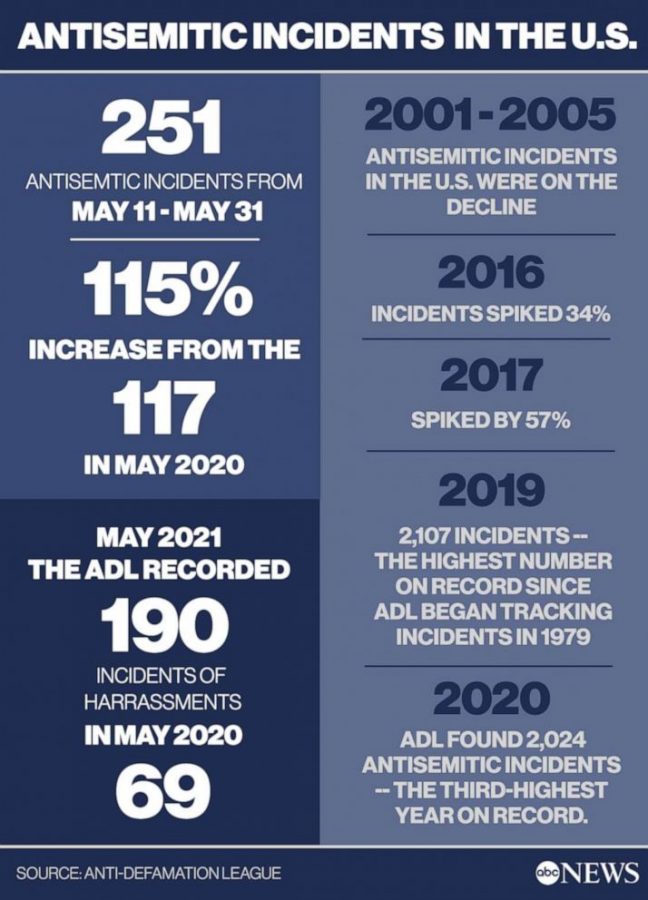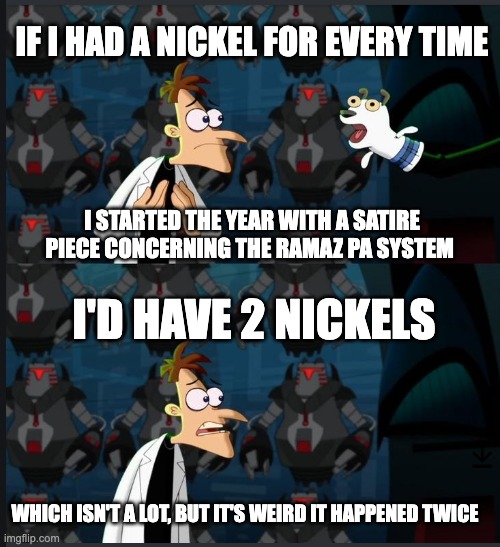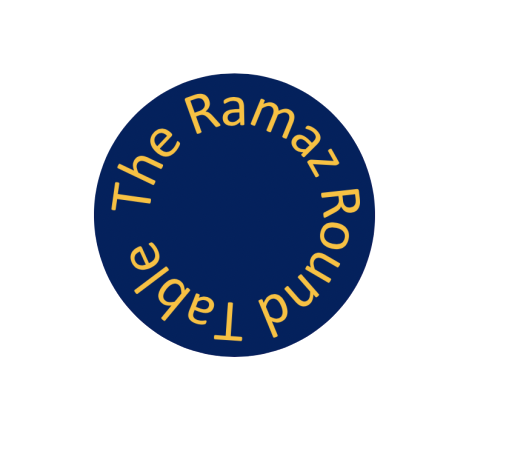Ramaz Needs to Spread Awareness About Antisemitism
As American Jews in the twenty-first century, we are incredibly lucky to be alive at a time where Jews finally have a home in Eretz Israel. Despite that blessing, we also have to deal with incendiary antisemitism. Antisemitism, of course, is not a new term. For as long as Jews have been around, antisemitism has been like a noose around our necks, slowly but surely getting tighter and tighter.
While most students at Ramaz are tuned into current events and are well aware of the situation for Jews in America, their knowledge stems from personal teachings outside of school. Since last May’s Hamas rocket attacks at Israel, there has been a dramatic uptick in both overt and covert antisemitic acts. Social media has exploded with both anti- and pro-Israel commentary, with the anti-Israel voices being more abundant and violent. Ramaz students, like myself, view these facts at home, not in school.
Ramaz does an incredible job teaching about historical ostracisms and discriminations, such as the diasporas after the destructions of the first and second temples, slavery in America followed by the civil rights movement, antisemitism in Europe, and the Holocaust. In alignment with Ramaz’s teaching trends, students should learn about their community’s current vulnerability in America.
There have been a myriad of antisemetic attacks throughout the past decade, including the Etz Chayim synagogue shooting in Pittsburgh, the Hanukkah stabbing in Monsey, and the vandilizations of other synagogues. Ramaz students need to be taught about the horrible hate crimes affecting Jews in the world. According to the Anti Defamation League’s (ADL) Tracker of Anti-Semitic Incidents, there have been 299 antisemetic incidents in 2021 alone. Unfortunately, Ramaz students have not been properly informed about these events.
As high schoolers, it is important that we build habits that we will continue after high school. Therefore, it is crucial that Ramaz students are properly informed about antisemitism. While the neglect of Jews continues to grow, Ramaz students should learn about the current antisemetic attacks.
Many of the freshmen agree that we need to learn more about modern antisemitism. After taking a survey, asking if Ramaz has taught them enough about antisemitism, the majority of freshmen reported that they wished they could learn more. In the responses, students said that they wanted to be more informed so they would not be shocked if they were a victim of antisemitism, would know how to deal with the situation, and could respond to it appropriately.
Students should be able to defend themselves, their families, their friends, and other Jews from being either mentally or physically affected by antisemitism. However, Ramaz students are unprepared to take on that responsibility due to the lack of teachings about antisemitism at Ramaz.
The risks of teaching students about anitsemitic attacks are clear: teaching students about the horrifying world that we live in brews fear of being Jewish. Additionally, Ramaz might be reluctant to teach about antisemitism because the teachings might cause parents to feel unsure of their childrens’ safety. Some parents may be afraid to let their children take public transportation whilst wearing a kippah and tzitzit. Hateful comments on social media also contribute to parents’ nervousness about their childrens’ safety.
Nonetheless, hate should not stand in the way of love for Jewish culture, religion, and our home in Eretz Israel. The only thing that stands in the way of our love for Judaism is not teaching our students about all of the intricacies of current antisemitism. Ramaz students must be properly informed about current events that have to do with Jewish livelihood so they can deal with and comprehend current issues.




